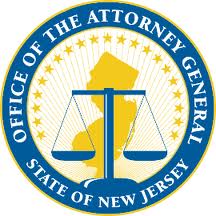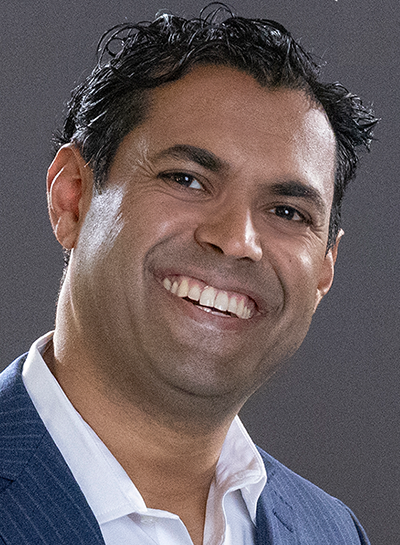
Polar Plunge Photos from Pier Village
February 24, 2013West Long Branch PD assists in child pornography investigation
February 27, 2013NEWARK – Attorney General Jeffrey S. Chiesa and the New Jersey Division of Consumer Affairs have filed suit against the operators of a purported Superstorm Sandy charity, alleging the defendants unlawfully misled the public by diverting donated funds into their personal accounts, misleading donors with false claims about the ways donations would be used, falsely claiming that donations are tax-deductible, and otherwise deceiving the public in violation of New Jersey’s charity registration and consumer protection laws.
“New Jersey’s law keeps charities honest, by requiring them to register with the State and provide clear, truthful information when soliciting donations from the public,” Attorney General Chiesa said. “This organization told the State it does not pay its executives, but our investigators found a paper trail reflecting thousands of dollars being transferred into the individual defendants’ personal bank accounts. Meanwhile, less than one percent of the money they raised, has allegedly been paid out to help victims of Sandy. New Jersey and the Attorney General’s Office have fought hard against alleged scammers in the wake of Sandy, and we will not permit profiteers to deceive the public with deceptive appeals for charitable donations.”
Since Superstorm Sandy devastated parts of New Jersey, the Hurricane Sandy Relief Foundation (HSRF) and its operators, John Sandberg and Christina Terraccino, have solicited donations through a website in which HSRF falsely claims to be a 501(c)(3) tax-exempt organization and represents that “(a)ll of our donations go towards food, clothing, supplies, aid in rescue and cleanup efforts, and the future rebuilding of communities and lives destroyed by Hurricane Sandy.” As of last month, the organization had raised more than $631,000 in monetary donations from at least 1,999 persons – but has disbursed less than one percent of that amount to Sandy-related causes, according to records obtained by the State.
The State’s lawsuit, filed in Bergen County Superior Court by the Division of Law, accuses the defendants of multiple violations of New Jersey’s Charitable Registration and Investigation (CRI) Act, Charities Regulations, Consumer Fraud Act, and Nonprofit Corporation Act. The State asks the Court to order the defendants to stop soliciting donations, shut down their website, disgorge and repay all funds and property acquired by violating the law, and pay full civil penalties for every violation, among other relief. Under the CRI Act and Consumer Fraud Act, a first violation is subject to a civil penalty of up to $10,000, and subsequent violations are subject to penalties of up to $20,000. Every solicitation of donations made while HSRF is not registered, and/or made through false or misleading statements, is considered a separate violation.
“The Division of Consumer Affairs identified certain red flags about this purported charity in late December, and immediately commenced an investigative inquiry. Shortly thereafter, we reached out to this group, told them to provide extensive documentation about their fundraising and activities, and met with HSRF’s operators at our headquarters in Newark to address the myriad concerns we had about their activities,” Acting Director Kanefsky said. “After a thorough investigation revealed multiple and ongoing violations of state law, we are now taking action to ensure that all of the money donated is used properly, in a manner consistent with the representations made to the public.”
The State’s lawsuit alleges:
Questionable Money Transfers
Financial records indicate the defendants have transferred more than $13,000 in public donations, from HSRF’s bank and PayPal accounts, into Sandberg’s and Terracino’s own personal accounts. Records show that the transfer of HSRF funds into Terracino’s personal bank account made it possible to pay for personal expenses including nearly $8,000 in payments to a credit card company.
Records also revealed that, between November and January, the defendants paid a total of more than $4,500 from HSRF’s bank account to merchants such as the Apple Online Store, the Vivo Tapas Lounge in Newark and other restaurants, two supermarkets, Christmas Tree Shops, and a home heating oil delivery service in the Sparta area where Sandberg and Terraccino reside. The defendants also transferred more than $3,000 from HSRF’s PayPal account to “Jezel Yepez,” an alias for Anthony Yepez, despite the defendants’ representations to the Division that he was a “volunteer” for the organization.
Despite these payments, the defendants in February applied for State registration as a charity – and claimed in their application that HSRF does not provide any compensation to its officers, directors, trustees, or executive staff. Their application also allegedly under-reported the amount HSRF had raised, by approximately $39,000.
Deceptive Claims to Donors
The State’s Verified Complaint also notes that, though HSRF claims all donations provide “immediate” relief to Sandy victims, the group has only given out $1,650 in gift cards during the three and a half months of its existence – an amount representing less than one percent of the $631,000 HSRF has raised in donations.
Furthermore, the State notes that HSRF has not obtained 501(c)(3) status from the IRS, despite indicating on HSRF’s website, Facebook, and/or Twitter pages that the organization has 501(c)(3) status, thus misleading the public by stating donations to HSRF are tax-deductible.
Using Another Charity’s Name to Solicit Funds
The “Donations” portion of the HSRF website includes a page titled “Hurricane Sandy New Jersey Relief Fund,” which states that “Hurricane Sandy New Jersey Relief Fund donations go towards cleanup efforts, and the future rebuilding of communities and lives destroyed by Hurricane Sandy.”
In reality, however, the Hurricane Sandy New Jersey Relief Fund, Inc. is the name of a separate charitable organization that is entirely unaffiliated with HSRF. Unlike HSRF, the actual Hurricane Sandy New Jersey Relief Fund is duly registered with the Division of Consumer Affairs to solicit charitable donations in New Jersey, and is registered with the IRS as a 501(c)(3) charitable organization.
The portion of the HSRF website that references the “Hurricane Sandy New Jersey Relief Fund” includes a link to a January 14 Star-Ledger article about an event in which that organization donated winter clothing to hundreds of Sandy victims. The State’s lawsuit notes that HSRF was not involved in that event, and the article’s inclusion on HSRF’s website creates the mistaken impression that the two groups are related.
That same “Donations” page on the HSRF website includes a PayPal link that encourages donors to make monetary contributions online. However, all contributions made via the PayPal link go to HSRF, not the Hurricane Sandy New Jersey Relief Fund.
Deceptive Reference to Corporate “Sponsors”
The HSRF website identifies “sponsors” including Hanes Brands and CSX Corporation. The Division of Consumer Affairs contacted both businesses, and learned that neither Hanes nor CSX has an actual relationship with HSRF or had authorized HSRF to use the corporation’s names and logos.
A Hanes representative stated the company attempted to contact HSRF and ask why the organization’s website uses the Hanes logo. A CSX representative noted that CSX had explicitly instructed HSRF to remove the corporation’s logo from its website, and that its continued use of the CSX logo would constitute willful trademark infringement.
Failure to Register as a Charity
Under New Jersey’s CRI Act, all organizations that solicit charitable donations in the State must register with the Division of the Consumer Affairs, and re-register annually. Registered charities must provide detailed information about their operations and fundraising activities. They must detail the charity’s annual income and expenses, including the amount spent each year on actual charitable programs, as opposed to the amount spent on fundraising or management costs.
Certain religious and educational organizations, and charities that raise less than $10,000 in public donations during a fiscal year, are exempt from the registration requirement. The State’s complaint notes that HSRF is not an exempt organization, although by January 15, 2013 it had collected at least $631,000 in donations.
The Division of Consumer Affairs encouraged the defendants to register as a charity with the Division’s Charities Registration Section. After operating for more than two months without even attempting to register, the defendants submitted an incorrect and incomplete registration form on January 4. A Division representative then contacted the defendants again, and directed them to the Division’s website for the correct form as well as instructions and additional information on how to apply for registration. The defendants on February 8 submitted a registration statement that was incomplete and contained inaccurate information, including the alleged under-reporting of the charity’s income by nearly $39,000.
The Division notified HSRF of the deficiencies in its latest application form, but the organization to date has failed to respond.
The State’s lawsuit notes that HSRF’s solicitation of funds, while it is not registered, constitutes an ongoing violation of the CRI Act and Charities Regulations, and prevents potential donors from being able to obtain clear and accurate information about the organization’s activities.
Chief Investigator Laurie Goodman, of the Division of Consumer Affairs’ Office of Consumer Protection, conducted this investigation. Deputy Attorney General Lorraine Rak, Chief of the Consumer Fraud Prosecution Section, and Deputy Attorney General Kourtney J. A. Knop represent the State in this action.
Consumers: “Investigate Before You Donate”
The Division of Consumer Affairs, through its “Investigate Before You Donate” campaign, encourages New Jersey consumers to learn as much as possible about any charity before deciding to make a donation. Consumers should:
- Find out whether the charity is registered in New Jersey, or is exempt from having to register. (Certain religious and educational organizations, and charities whose annual income includes less than $10,000 in public contributions and fundraising, are exempt from having to register with the State.)
- Find out how much the charity spent during recent fiscal years on program costs, management costs, and fundraising.
- Learn about the charity’s stated mission.
Consumers may obtain information about a charity in several ways. They can ask the charity itself (reputable charities encourage you to do so), or visit the charity’s website.
Consumers can also obtain this information from the New Jersey Division of Consumer Affairs. Visit the Division’s Charities Registration page; call the Division’s Charities Hotline at 973-504-6215 during regular business hours; or use the Division’s free “New Jersey Charity Search” smartphone app.
Consumers who believe they have been cheated or scammed by a business, or suspect any other form of consumer abuse, can file a complaint with the New Jersey Division of Consumer Affairs by visiting its website or by calling 1-800-242-5846 (toll free within New Jersey) or 973-504-6200.






